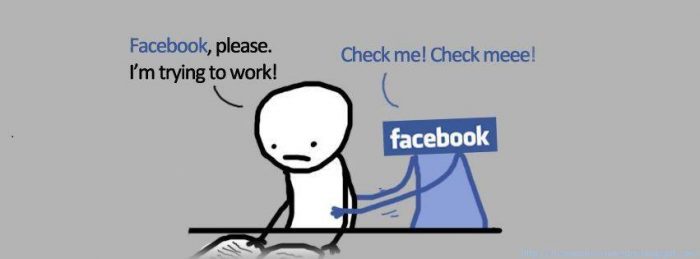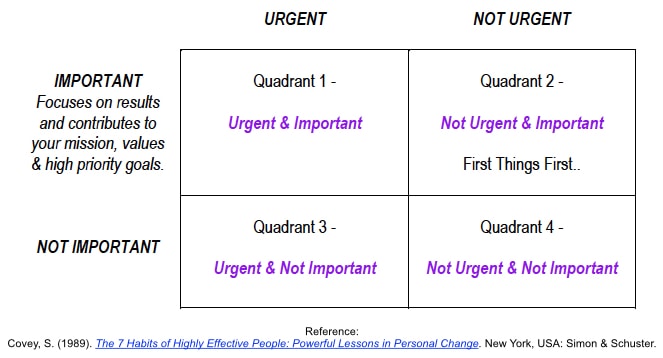Social Media Strategy: 4 Tips for Busy Professionals

For marketers, social media is a double-edged sword. No doubt, it’s full of possibilities. In fact, many marketers would argue that a social media strategy is unavoidable in today’s marketing world.
However, it’s not all sunshine and rainbows. First, social media takes up a substantial amount of time and effort. But what’s worse, it sucks you in, just like it does with all other non-professional people. You come to work, open your company’s Twitter and Facebook pages to check what’s new, and suddenly it’s way past breakfast time and you’re reading a weirdly engaging article about tech ideas for home. Sounds familiar?

Social media causes procrastination and self-loathing like nothing else (alright, that might be exaggerated, but you get the point). To such an extent that some social websites (e.g., Hacker News) voluntarily introduce a feature that stops you from browsing after a set amount of time, and many companies block social media for their employees. However, what can one do when your job is highly dependent on social media, and the line between work and fun is just so unclear?
Don’t panic. I’ve got the recipe for success.
1. Use social media monitoring
Instead of going to each business page on all of your social media platforms, checking notifications, and widely scrolling until your eyes pop out, use a social media monitoring tool (e.g., Awario). A tool like this will find more relevant mentions than you would conducting the search yourself. Most social media monitoring tools will return mentions from news, blogs, and forums — not just social networks. And you need all of these things to be successful.
After you’ve looked through the mentions of your brand, reply to the ones that require your engagement. Do it straight from the dashboard. This way you won’t have to even open your Facebook or Twitter account, and if you do – remember, this one is not for the sake of your work: you’ve already checked and replied to everything. Sometimes, a bit of self-reflection is all you need.
2. Work on your tasks in batches
I’m sure you love to multitask. It makes you feel busy, productive, and talented. You’re proud of the fact that you can listen to a podcast while writing a new blog post while checking up Twitter every hour (yes, that’s based on a very personal experience).
I’ve got some bad news for you: most people are much worse at multitasking than they think they are. The majority is absolutely terrible. Here’s a great post that explains the problem of multitasking in more detail. What should you do instead?

Divide your tasks into batches. The batches could be things like:
- Following and unfollowing people
- Creating social media posts and scheduling them for later
- Scheduling articles to post (e.g., with Buffer)
- Reading articles
Or anything else — you know your workflow. The key is to not do everything at once, but to divide and conquer.
Start with the most urgent and most important tasks, then move to less urgent but still important ones, and only then allow yourself to browse through things that are vaguely work-related.

Note: I know that sounds like something outside of this world, but try switching off your phone while concentrating on a task. For most people, the world won’t collapse if they ignore the calls and messages for forty minutes five times a day.
3. Give yourself a time limit (and a reward)
After you’ve divided your tasks into batches, estimate a deadline for each one of them whenever possible. Introduce personal deadlines – they’ll keep your life-work balance and productivity on top.
However, first, keep it real. This is very important, as often people come up with twenty deadlines a day, and then, when the first one isn’t met, they give up on the whole idea.
So start small. If you feel like you’ve mastered your current personal deadline pace and still spend time procrastinating, set the additional ones.
 The other thing that might help skyrocket your productivity is the introduction of rewards. Tiny ones that will make you feel better, or maybe something you’ve always wanted after meeting an especially difficult deadline.
The other thing that might help skyrocket your productivity is the introduction of rewards. Tiny ones that will make you feel better, or maybe something you’ve always wanted after meeting an especially difficult deadline.
It’s also necessary to take a break after each task is completed. Preferably, getting up and going for a walk or at least for a coffee. It’s really hard for almost anyone to concentrate for more than forty-five minutes in a row, so time your tasks keeping that in mind.
4. Optimize content curation
Content is undoubtedly important in social media strategy, but it takes up a ridiculous amount of time. Here’s how to simplify it:
- Create an editorial calendar (if you don’t have one yet) and fill it out with relevant posts. This will save you from looking for articles to post when you need them.
- Not sure what strategy to stick to when posting? Try the 70:20:10 rule of content marketing suggested by Dave Chaffey. When planning your editorial calendar, use this as a guidance.
- 70% of content should be proven content that supports building your brand or attracting visitors to your site;
- 20% of content should be premier content which may be more costly or risky but has a bigger potential new audience, for example ‘viral videos’ or infographics;
- 10% of content should be more experimental.
- Automate the process as much as you can. Use tools like Feedly to gather content and tools like Buffer to schedule the articles to all social media accounts at once. Try IFTTT for more advanced workflows, and if you don’t have time to do all of the above, use Quuu — it finds relevant content and posts it for you.
In the environment of social media marketing, staying focused and productive can be very challenging. It’s a distracting area, and it requires being disciplined and creative in equal measures, while most people are either one or the other. I truly hope this article gave you some useful ideas on how to master the skill and become as productive as you can be.
About the Author: Alina Gorbatch is an experienced web marketing specialist and content writer at Awario. Follow @BlondeAlina on Twitter.
You Might Also Enjoy These Posts
LinkedIn Ads vs Facebook Ads for B2B Marketing
The Importance of Data for Your Social Strategy and How It Can Drive Business Decisions
Welcome To DemandZEN
DemandZEN specializes in Account-Based Demand Generation and solving the challenges around finding, engaging and converting target accounts into real opportunities for B2B Technology and Services companies.


